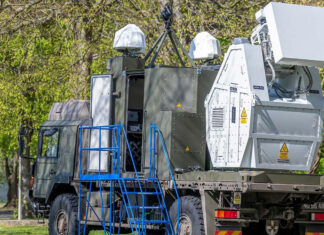About 100 nations across the world have already come out in recognition of an independent Palestinian state, and more are expected to be coming onboard until September, when the United Nations General Assembly (UNGA) will vote for the creation of an independent Palestinian State within the 1967 borders.
Symbolism aside, if there is one thing the Palestinians have not learned in more than eighty years of conflict and four decades of fruitless peace talks, it is that if ever they hope to have a state of their own it will only be through realistic negotiations with Israel. A UNGA vote might give them a temporary field day in joyful manifestations, but when the curtain goes down reality will again erase all the hope for a workable solution.
Here are some of the reasons, why a unilateral move will create a non-starter situation, that cannot work: Even if the UNGA passes a resolution, calling for the creation of an independent Palestinian state within the 1967 borders of the West Bank, it will still remain a landlocked entity, fully dependent on Israel’s goodwill to provide access to Mediterranean ports – which Palestine will depend on for its import and export.Palestinian dependence on water supply also rests on Israeli sources which themselves suffer acute shortage and will more and more rely on seaside desalination plants – hardly accessible under the circumstances which will prevail if Palestine is unilaterally created. A simple look at the West Bank map will show that a non-negotiated unilateral Palestinian statehood, call it what you will, presents an impossible geo-political maze which cannot be ruled by central administration. Even if we discount the Jewish settlements, its remaining territory is partitioned, and subdivided into cantons, without directly controlled links between them, a situation that would scarcely be a state worthy of the name.

To be more specific the Palestinian West Bank is divided into two parts, the northern part (Samaria) with Ramallah, Nablus, Jenin, Tul-Karem and Qalquilya as Palestinian enclaves, and the southern section (Judea) with Bethlehem, Jericho, and Hebron. In between there is Jerusalem, that has now been expanded eastwards to such a degree that it encroaches upon the Judean Desert and cuts the Palestinian territory in half. The Jordan Valley, that should normally mark the natural boundary between the future Palestine and the Kingdom of Jordan, is practically a military zone, and Israel has already made it clear that it does not intend to demilitarize it. In other words, the future Palestine will be a land-locked State, surrounded completely by Israel or Israeli controlled territory.
An alternative using Jordan’s Aqaba port instead of Ashdod or Haifa, might be useless, as any transports would have to cross the Jordan River bridges, which Israel will continue to control – moreover it is highly doubtful if the current Hashemite Kingdom of Jordan will welcome such a move, fearing more Palestinian influence on the already large population of Palestinian origin, including Islamic radicals among them, causing instability in the Kingdom.
About half of the Palestinian population is concentrated in another enclave – the Gaza Strip, cut off from the West Bank and ruled by the Islamic radicals Hamas, which not only places at its aim the ultimate destruction of Israel, but opposes any Palestinian state ruled by its arch rival the Palestine Liberation Organization (PLO) headed by Abu Mazen. Moreover, Gaza’s ‘Hamastan’, created in a violent coup d’etat in 2007 is virtually at war with Israel, bombarding its territory constantly with rockets and mortar fire. Having already won the controversial 2006 elections and should they win the oncoming ballots once more- they would destabilize any newly created entity in the West Bank and resort to terror against Israel – which will inevitably lead to all-out war, resulting in catastrophic consequences and end final hope to any Palestinian liberty.
But should the UNGA vote assemble a huge majority supporting this unrealistic creation, Israel too will come under severe political and perhaps even economic sanctions. The real value of the vote will depend on which nations will give their “yes” to the proposal. The Arab and Muslim world nations are certain to adhere to their traditional anti-Israel stance, but whether Europe and especially the majority of the G20 countries will join will depend on the United States attitude and how much influence it will have on the proceedings. It will be up to Israel’s diplomatic effort during the next few months to gain as much support among its remaining friendly nations to prevent a political disaster from occurring. Based on Netanyahu’s controversial right-wing oriented coalitions, this will be difficult enough and under such stringent conditions, extremely problematic to sustain its case convincingly. With the revolutionary turmoil engulfing its neighbors and the waning influence of Washington’s Obama administration, Israel will feel more and more isolated in the coming months, with the specter of a massive support for a Palestinian statehood, backed by the United Nations placing the Jewish State in a highly precarious diplomatic situation.
“We are facing a diplomatic-political tsunami that the majority of the public is unaware of and that will peak in September,” said Ehud Barak, Israel’s defense minister, at a conference in Tel Aviv last month. “It is a very dangerous situation, one that requires action… Paralysis, rhetoric, inaction will deepen the isolation of Israel” Barak added.
And there is good reason for concern, even if the UNGA recognizes the ‘non-starter’ Palestinian statehood coming September. With this vote, which will have similarity with the November 1947 Lake Success vote for the establishment of the Jewish State, for the first time in 63 years the West Bank real estate will have legal ownership. Since Palestinians refused to accept the UNGA resolution of 1947, most the West Bank territory had no official owner since 1947 as it was seized by the Hashemite Kingdom of Jordan in 1948, and, since occupied by Israel in 1967, regarded ‘occupied under military administration’ since 1967. The last official ‘owners’ were the Turkish Ottoman Empire, the law of which still adheres to much of the legal proceedings here. Land settled by Jews will come ‘de jure’, if not ‘de facto’ under nominal jurisdiction of the UNGA created Palestinian entity. To add an even more sinister quote, Palestinian Chairman Mahmoud Abbas recently refused to allow any Jew to live in what would in future be a Palestinian state. In contrast, about 20% Arab Israelis are living in peace among the Jewish majority in Israel since 1948, with full political freedom (if not full satisfactory rights, as many Arabs and Israeli Jews claim).
Realistically seen, it might not make any difference, as it is highly doubtful that substantial changes will come into being as long as bi-lateral negotiations will fail to solve this never ending enigma. With the entire Arab Middle East in turmoil, even the leftist Palestinian ‘well-wishers’ in Israel can hardly envisage a forced mass evacuation of the Jewish settlers in the West Bank and cede it to an uncertain fate with what may well become a Islamic Hamas-ruled neighbor – its rockets daily targeting most of Israel’s coastal cities and strategic installations.
















